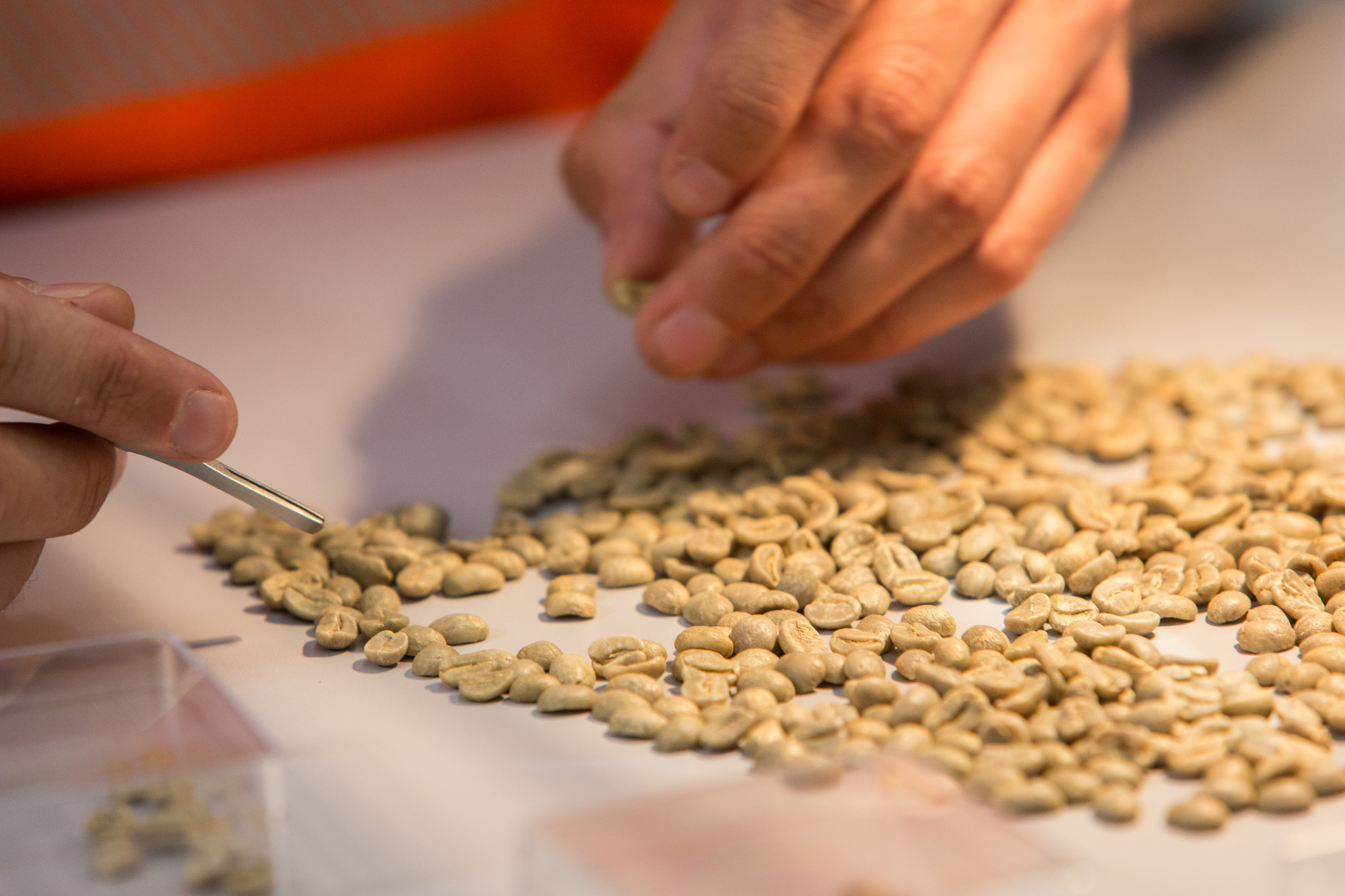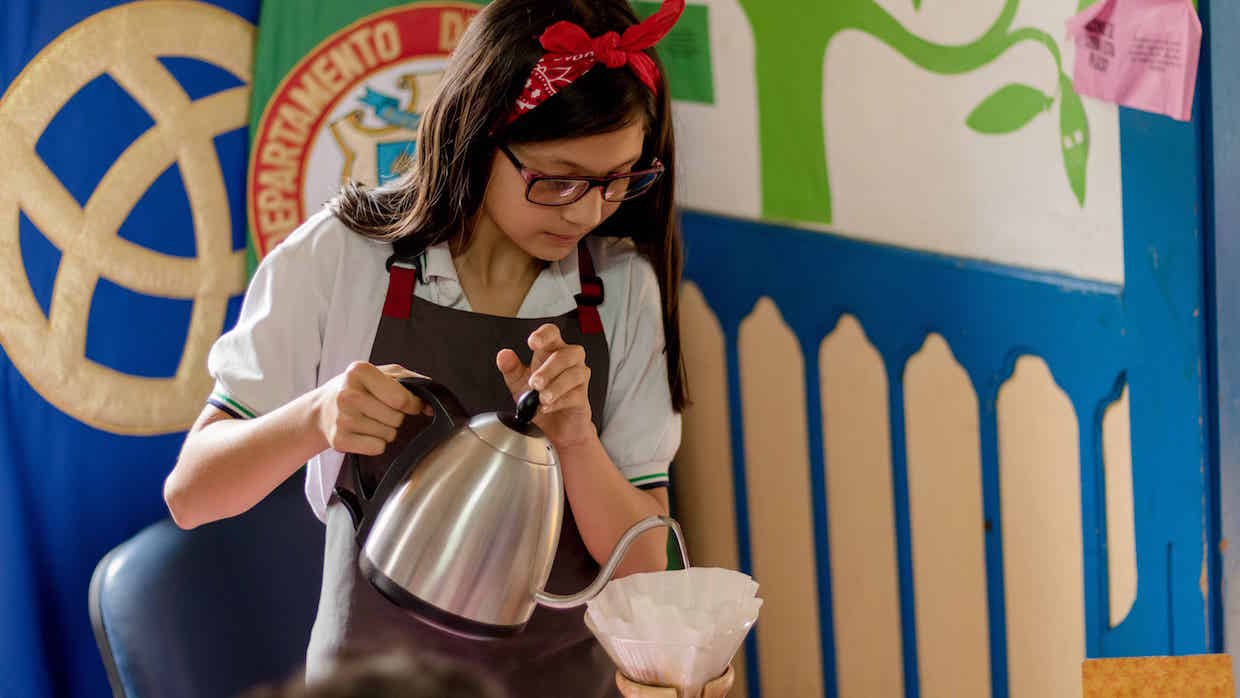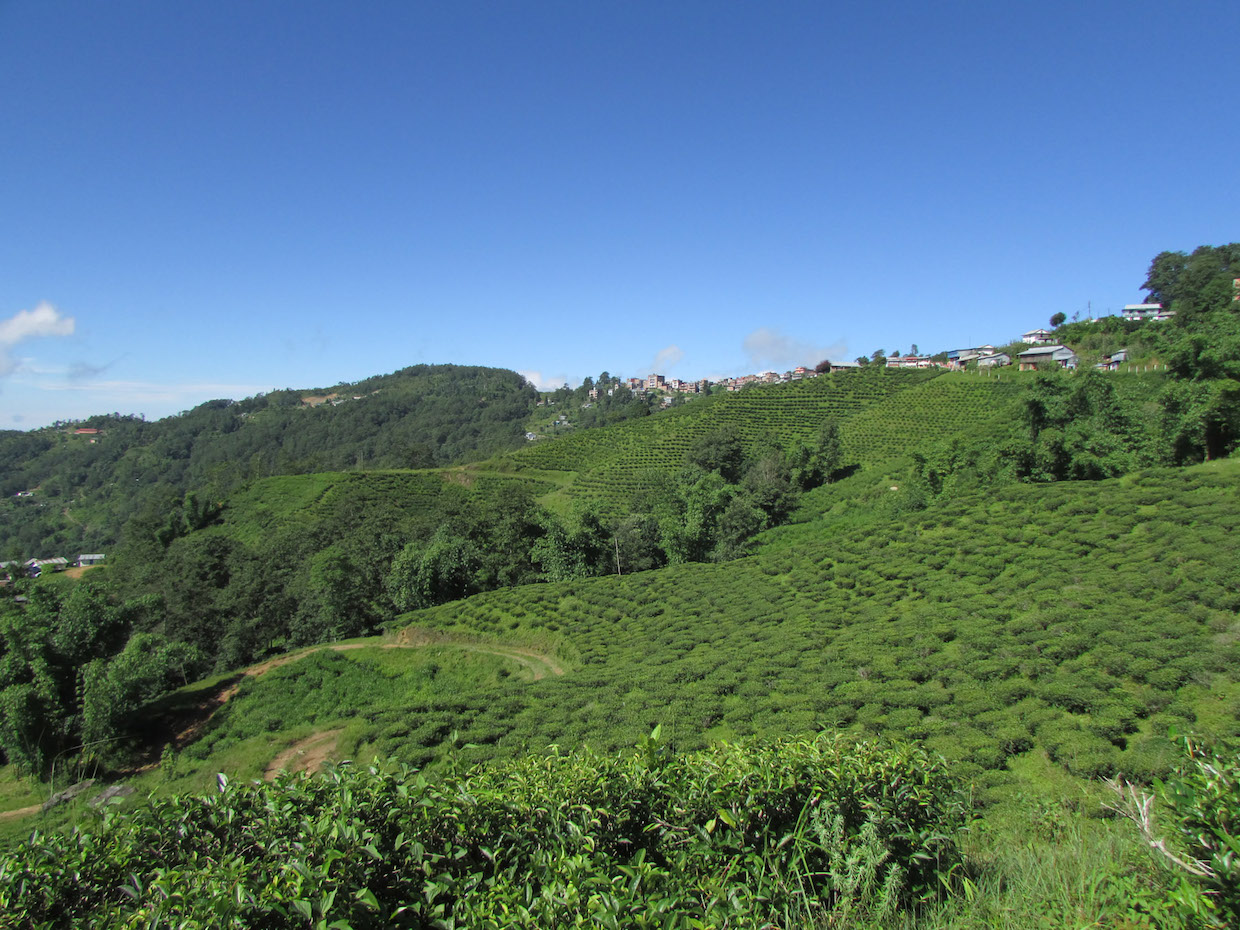If there’s one thing most folks in coffee can agree upon, it’s that there’s always more to learn. And, of course, that research and education in the coffee sphere are crucial to the industry. Nestlé clearly knows this. While investing $43 million in an expansion to its Nespresso Vertuo coffee system production lines in its Romont, Switzerland, factory, the company is also opening a product development center there, referring to it as a “Coffee Campus” training facility. Beverage Daily got the scoop:
The Product Development Center is dedicated to developing new Nespresso machines and Grand Cru coffees, including coffees from rare origins. Meanwhile, a small-scale production facility enables experimentation with different coffee experiences.
The Coffee Campus functions as a training centre that will continuously raise the level of expertise within the company and among external partners such as chefs.
Bogor Agricultural University (IPB), in Bogor, Indonesia, is also doing its part in opening a Sekolah Kopi (school of coffee), in collaboration with Bogor coffee shop Rumah Kopi Ranin. The new institution opened on Saturday, Nov. 10, according to the Jakarta Post:
Cofounder of Rumah Kopi Ranin Tejo Pramono said that the idea of opening a coffee school started back in October 2017, when President Joko “Jokowi” Widodo invited him to the Bogor Palace.
“I said to the President that Indonesia needs more coffee experts, and I also presented the result of the training that we conducted with farmers in many areas in Indonesia. The President then told me that we need a school of coffee,” Tejo recalled.
He went on to say that the reason why IPB students needed a school of coffee was because they were already taught the sciences related to coffee, so they understand the basics, and they also studied agriculture, are professional, accustomed to working in the lab and their skills could be developed to the next level in coffee training.
And in Colombia, there’s a youth movement in coffee education. NBC News reported that a program in Marsella, Colombia, called Cafeteritos aims to protect the future of coffee by bolstering enthusiasm in the youth, teaching “barista” brewing skills and more to kids age 6 to 12:
Cafeteritos grew from a 2016 pilot program started by philanthropist Javier Sánchez Embid from Guadalajara, Spain, local coffee grower José María González Salazar and local library head Adriana Grisales with the intent of providing an educational after-school program that would appeal to both boys and girls. Now, the kids compete in brewing competitions and go on field trips to processing centers and coffee farms.
“We’re bringing together not only the generations, but different parts of the production chain,” said Wilson Flórez Valencia, cultural center and library coordinator for Comfamilar Risaralda, a compensation fund that runs the library and 17 others across the Risaralda region.
Conversely, it’s “No-School November” here in the States. And unfortunately, as we gorge ourselves on Thanksgiving delicacies all week, Dr. Vincent M. Pedre told Sporteluxe that coffee’s effects on insulin and adrenal glands might only make it harder to slim back down later on:
“One thing this hormone is very good at storing is fat in your midsection,” says Dr. Vincent M. Pedre. “Keeping insulin elevated can make your cells less sensitive to its ‘signal’; this is called insulin resistance. To lose weight and keep it off, you want your cells to be the complete opposite—insulin sensitive.
Short-term disruptions in insulin sensitivity and blood glucose levels, which lead to weight gain in the form of increased abdominal fat, then deposits a feed-forward mechanism in your abdomen that propels the forces of weight gain, even as blood sugar levels may have normalized with long-term caffeine consumption.”
That probably comes as good news to Coca Cola, as it seeks to fatten its bottom line through acquisitions in the coffee industry. Coca-Cola President and CEO James Quincey chatted with CNBC about the company’s coffee strategy:
“Our idea is not to go head to head” with companies like Starbucks and Nestle, which made a $7 billion licensing deal with Starbucks in May, the CEO said.
“Whether you want to call it food service or partnering with customers to get stores on, the express is like the top-end vending machine for coffee that gets a barista experience, whether it’s in a petrol station, a convenience store, at work,” Quincey said. “We have store in stores in cinemas. So there’s a massive opportunity to partner with customers to sell more coffee, really high-quality barista coffee, in someone else’s store.”
Fun fact: One of Coca Cola’s largest bottling plants is the Nigerian Bottling Company. The soda company is also extending its diversification strategy there by pursuing ownership of Nigeria’s leading juice company, Chi Ltd. It’s therefore probably also already aware that coffee consumption in Nigeria grew by more than 20 percent between 2010 and 2015, and is expect to continue to grow, according to Proshare:
The emergence of a coffee-shop culture in urban centers is a key factor contributing to the rise in coffee consumption in the country.
Nigeria is a fringe producer of coffee, with annual output estimated at 1,900 tonnes (less than 1% of global output). As Nigeria seeks to diversify from its oil dependence, a boost in local production of coffee could be crucial for economic growth and job creation.
While World Coffee Research has found optimism in the pursuit of developing new rust- and climate-resilient strains of Arabusta — Arabica varieties that contain Robusta genetics — a piece in CNN this week highlighted successes among Ivory Coast farmers such as Andre Braud-Mensah in increasing efficiency in harvesting and processing old Arabusta, and roasting it for the domestic market:
“People say ‘I don’t like coffee’ but in fact they do like it. You just have to roast it in the right way,” said Braud-Mensah.
One of the final challenges for both Robusta and Arabusta producers is broadening the market for Ivorian coffee at home.
“We’re here to promote Ivorian coffee and make the Ivorian people understand the quality of their coffee,” said Mohammad Fraoua, the manager of one of the newest arrivals to the Abidjan coffee scene, Cafés Bondin.
In an effort to mitigate strain among farmers facing rising costs of production in Nepal, the National Tea and Coffee Development Board recently increased the prices paid for coffee. Certified organic A-grade cherry and non-organic B-grade cherry both increased by Rs2 (less than $0.03 USD) per kilogram, up to Rs85 ($1.20 USD) and Rs80 ($1.13), respectively; parchment coffee was hiked by Rs10 ($0.14) per kilogram, up to Rs425 ($5.98 USD) per kilo for organic A-grade and Rs 410 ($5.77) for B-grade. The Kathmandu Post had more:
Shesh Kanta Gautam, executive director of the board, said that prices have been increased on the basis of farmers’ costs of production. The price has also been increased to encourage farmers towards coffee plantation and make them feel that the government has their back, he said.
The government’s move to increase prices will directly benefit farmers, said Bindu Chandra Baral, chairman of Coffee Production Association, Kaski.
“With the revision in the prices, the government also needs to make efforts to increase production as Nepali coffee demand has been growing in the international market.”
Should any guests at your Thanksgiving table accidentally spill coffee, perhaps the best thing to do is just make more coffee. Consider the anecdote about Father Cedric Prakash, an elder priest contacted by journalist Rosemary Lane who, according to Vatican News, was collecting simple stories for a book to be attributed to ‘Pope Francis and friends.’ Prakash had spent “a long time working on a document, highlighting passages and scribbling in notes and sub-notes,” when a friend came in and spilled coffee all over it:
“With a pen I used to put down words, phrases, ideas on plenty of sheets of paper; I like jotting down things in my ugly scrawl” he said.
He says that instinctively he was upset: “It was several hours of work gone – it was all blotched, nothing to be saved, as the pen I was using was one of these fluid ink types”
“I didn’t know what to do” he said, reflecting on the fact that he had several possibilities: “being angry, crying… because it was just work that was gone”. “So I smiled as said to him: shall I make you another cup of coffee?”
Howard Bryman
Howard Bryman is the associate editor of Daily Coffee News by Roast Magazine. He is based in Portland, Oregon.











Comment